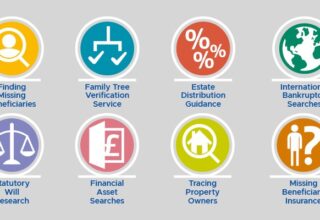
At the BEST Foundation, we are committed to fostering genuine change in the estate planning industry for our members, the wider community, and consumers alike.
Recently, we became aware of extended processing times at the Land Registry, which in some cases have stretched up to 15 months. Such delays can disrupt professional processes and client expectations.
We are pleased to announce that we have initiated open discussions with the Land Registry to address these issues. Our goal is to bridge the gap between the Land Registry and end users by highlighting our members’ concerns and sharing their plans to tackle these challenges as well as tips and educational pieces.
Our first discussion with the Land Registry was constructive and our initial feedback was met positively and answered honestly.
The reasons for the current delays go back some time, but the long and the short of it is that more caseworkers are needed to address increasing demand and to process the oldest applications that they still have. The Land Registry has recruited approximately 1,000 new people and is also retraining and redeploying non-operational staff to help improve the position. Encouragingly, they are now processing more cases than they receive, which is gradually reducing delays. Nevertheless, some applications are still taking a very long time to process.
The Land Registry are keen to encourage the use of their expedition service where circumstances call for it, as this is continuously resourced to meet demand. They also wished to confirm that the job of updating property titles is often a formality and that the property owners will be legally protected once their application is received regardless of how long it takes for the title to be formally updated.
In terms of tackling the issue of staffing, this is a bigger project being looked at by the Land Registry. They have a target of no files older than 12-months in place that they are hoping to meet by the end of this financial year, and they have advised that they estimate it being a case of months rather than weeks before changes are seen to current timescales.
Those who make use of the Digital Registration Service (DRS) may be aware that the estimated dates given for completion can be quite broad. Submissions are categorised upon receipt as either complex or straightforward and this is what will determine an average for the estimate completion date. The Land Registry are working to implement a better system for categorising new applications to ensure that more accurate estimates are made.
The Land Registry offers several resources on their website. Their Training Hub provides guidance on their services to help ensure high-quality applications and avoid unnecessary requisitions. Access all training materials here: HM Land Registry training hub – GOV.UK (www.gov.uk).
Secondly, there is a link to a webpage that details overall application times by type. These numbers complement the application-specific information provided by the View Application service in the DRS. Access it here: https://www.gov.uk/guidance/hm-land-registry-processing-times
We are incredibly grateful to the Land Registry for their time and commitment to continuing our discussions and we look forward to our ongoing collaboration.


